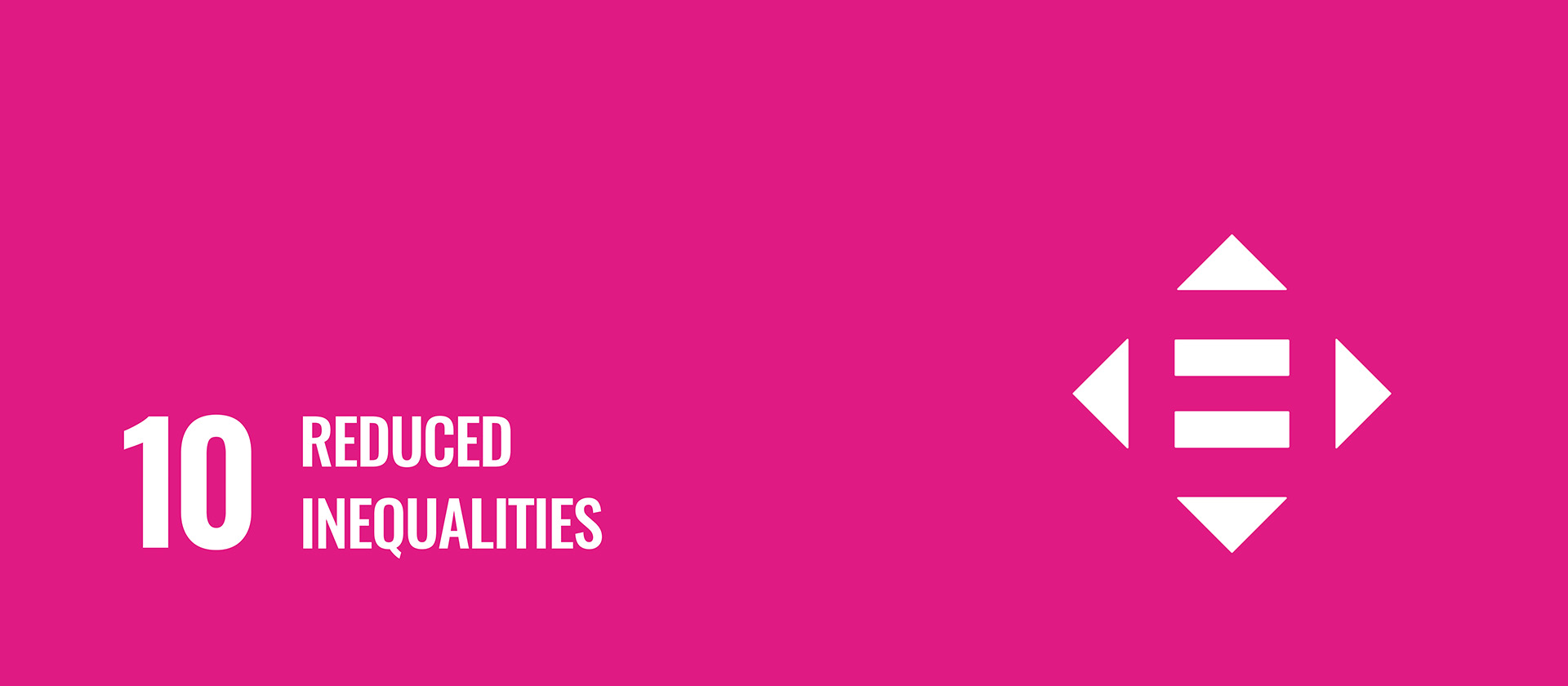The Covid-19 pandemic has further compounded inequalities with the poorest and most vulnerable hit the hardest, exacerbating social and economic inequalities with unemployment increasing and incomes decreasing. Sadly, hate speech, targeting vulnerable groups is also on the rise.
Find out more about Goal 10: Reduced inequalities.
Teaching and learning
University of Liverpool students are able to this topic from a number of different perspectives within course modules. Examples of course modules that have a direct or indirect focus on inequalities (as assessed by students) include:
- Clinical and forensic psychology (PSYC232)
- Regulating medicine, health and social care (LAW597)
- Geographies of energy and natural resources (ENVS516)
- Public Ethics (POLI260)
- Sociologies of Class and Inequality (SOCI335)
- Social and Spatial Inequalities (ENVS357)
We recognise that there is much more to do to equip students with the knowledge and skills that they need to make a contribution to achieving this global goal. Working with the Guild of Students our undergraduates and postgraduates have the opportunity to audit their curriculum modules for their relevance to SDG10: Reduced inequalities and to make recommendations for changes to the course content. For more information on how students can get involved see the Guild curriculum audit report.
The University has also established a Culture and Community Working Group. This group brings together academics, students and representatives from the Centre for Innovation in Education to develop a strategic plan for embedding SDGs into the curriculum including SDG10.
There are also a number of ways that students can support the aims and objectives of SDG10 through extra-curricula activities, including through volunteering opportunities provided by the Guild of Students.
Research and knowledge exchange
The University contributes to the identification of the root problems that cause inequalities and the potential solutions across many areas of research. Some key examples are:
- National Spatial Strategies in an Age of Inequality Report (Feb 2019)
- Poverty dynamics and health in late childhood in the UK: evidence from the Millennium Cohort Study
- Influencing policy and Nations Top 100 Lifesavers
Leadership, governance and professional services
Examples of leadership, governance and professional services include:
Widening Participation and Outreach
Widening Participation and Outreach delivers projects and activities in order to widen access to the University for those students who are under-represented in higher education such as learners from disadvantaged and low-income backgrounds, looked after children/care leavers, disabled students and students from ethnic minority backgrounds. The team run initiatives to provide students with a sustained programme of academic support, as well as information, advice and guidance. We work with a range of learners including:
- Year 5 with our primary programme
- Year 9-11 programme for aspiring medics
- Liverpool Scholars post-16 programme
- Focussed mentoring for looked after children and learners from ethnic minority backgrounds.
We engage pupils, teachers, parents and carers in the activities we run and our work is supported by trained University of Liverpool students and staff, the Guild of Students, the Victoria Gallery & Museum and Professional Services in order to deliver this most effectively.
Back to: Sustainability
